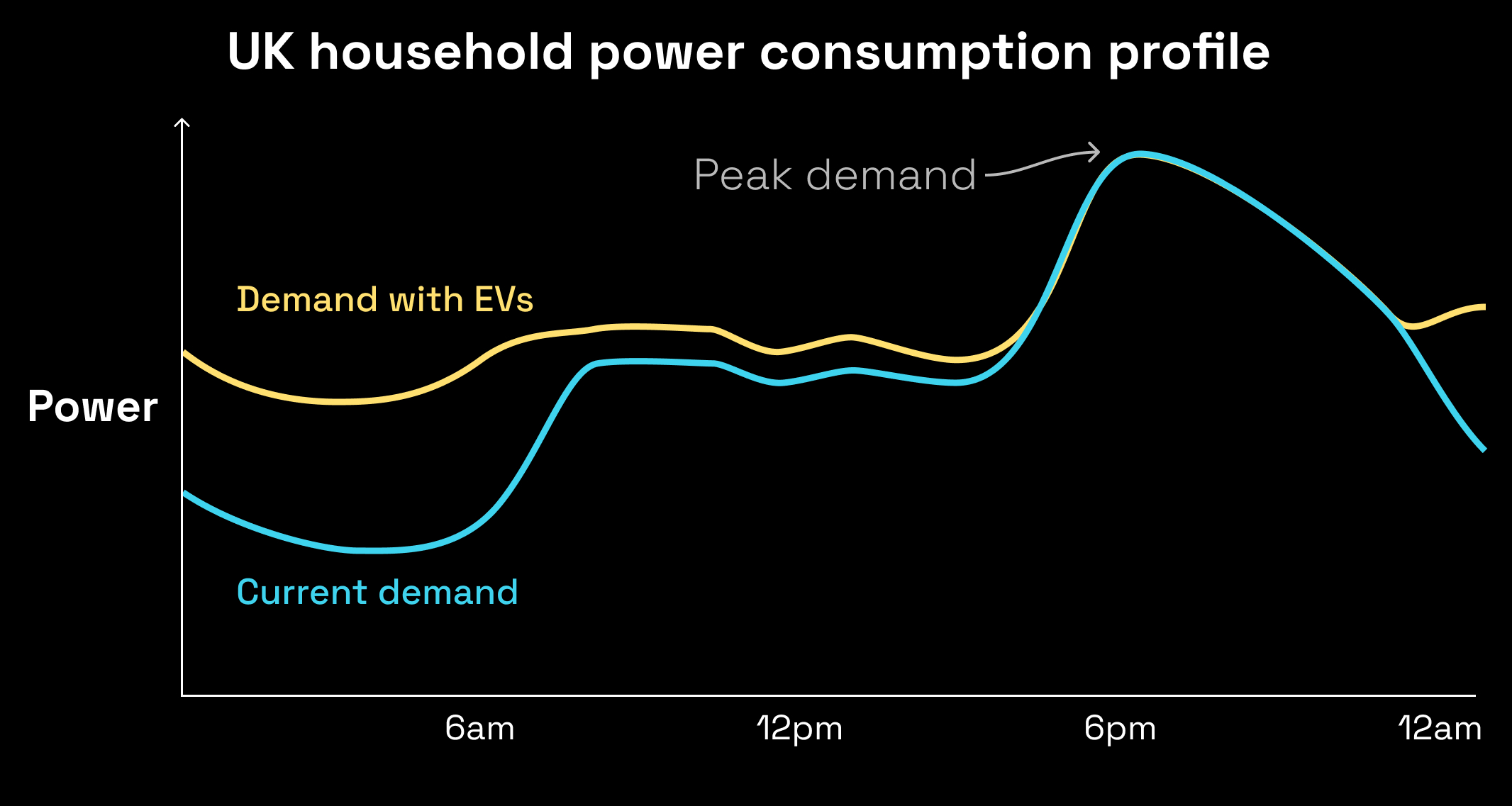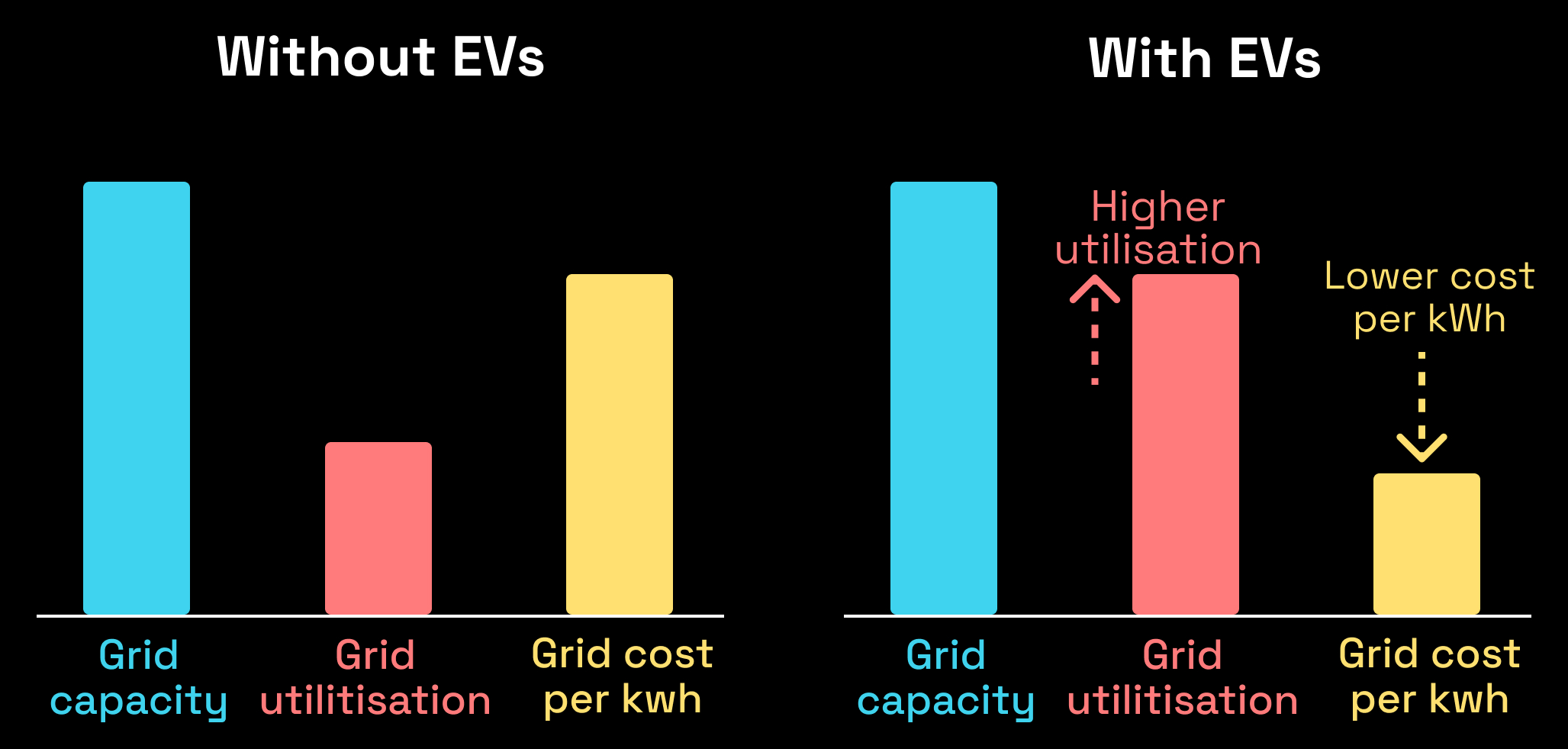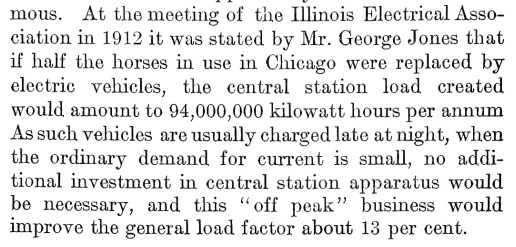Electric Cars Make Electricity Cheaper
June 24, 2025

Previous Article
Next Article
Electric Vehicles consume a lot of energy - about the same as an average household. This will significantly increase the amount of electricity sent through the power grid.
It sounds like this might require costly upgrades to wires and pylons. But it turns out that electric vehicles make electricity cheaper for everyone.
EVs improve utilisation of the existing power grid
Pylons and wires are built for peak demand. The rest of the time, they are underused.
EVs rarely charge up at peak times. Our job at Axle is to ensure they charge at the optimal times of day.

Last year, peak demand on the UK’s power grid was 45 GW, but our average consumption was only 26 GW.
Our utilisation of the grid is low, and there is ample room to transport more energy, provided that it is not at peak times.
EVs spread fixed costs over more energy.
Energy levies are divided between households according to how much energy they consume. If you consume more energy, you pay a bigger share.
EVs increase the utilisation of the grid. This means that the same charges are spread over more units of energy, meaning lower costs for everyone.

A typical household consumes about 3000kWh, at a cost of about £900, or 30p/kWh.
An EV household consumes roughly double that, but typically at cheaper rates. EVs are usually charged at below 10p per kWh, which brings the household average down to 20p/kWh.
Adding EVs means that:
- Households without EVs pay less for electricity (because more grid charges are paid by EV-owning households)
- Households with EVs reduce their average cost of electricity (through increasing off-peak usage)
This fact has been obvious for a long time. Here is a newspaper clipping from 1912:

All else equal, countries with higher load factors will pay less for their power network.
EVs absorb excess renewables (which are weirdly expensive)
Dealing with big gluts of renewable energy is a surprisingly big problem.
The UK spends a lot of money turning off wind turbines when they are producing too much electricity. Other countries face this problem with solar.
Until recently, most electricity consumption has not been flexible. It does not make sense to adjust the timing of most domestic electricity consumption.
But EVs (and electric heating) are different. Topping up your car with cheap electricity is a no-brainer, and automating this is inevitable. Flexible demand is the best way to absorb excess renewables: it’s an obvious win-win.
EVs can provide grid services at lower cost than alternatives
Every power grid pays for services that help it balance supply and demand. Private actors offer their availability to turn up or down for a price. Some of these contracts require response within seconds, some within hours, and some are reserved years in advance (read more here). Whilst these services are typically provided by large power plants and batteries, EVs can provide them at a lower cost (when they’re plugged in).
Where the business case for a power plant depends on revenue from these contracts, the EV is already purchased. Its marginal cost to participate in these services is zero, as long as the consumer’s needs (getting the car charged when it’s needed) are met.
Axle is a leader in enrolling EVs into grid services. We have participated with hundreds of thousands of EVs in grid services programmes, and consistently provide services at a lower cost than alternatives.
EVs are friendly grid citizens
EVs give much more back to the power grid than they take. But this won’t happen by default. A clean and cheap electricity grid depends on the ability to charge EVs intelligently - and that’s what we’ve built at Axle.
We’re also hiring. If you like moving fast, and you want to work on the biggest bottleneck to decarbonisation, join us!



